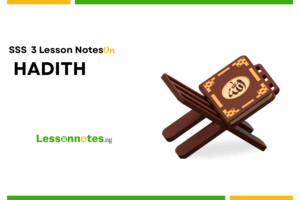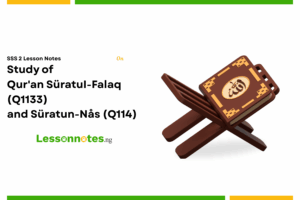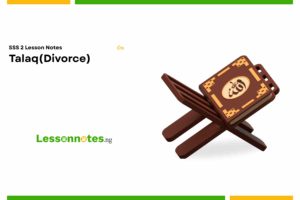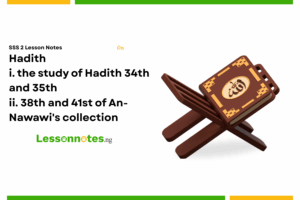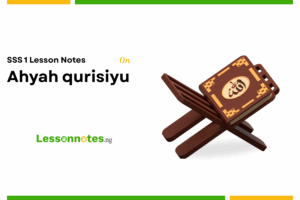Nikkah (marriage) SS3 Islamic Studies Lesson Note
Download Lesson Note
Lesson Notes
Topic: Nikkah (marriage)
An-Nikah: definition, importance, purpose and rules governing marriage.
Concept of Marriage in Islam
Marriage is called ‘An-Nikah’ in Arabic. It is expected to be an age-long contract.
Marriage is Encouraged by Islam
- It is enjoined by Allah on all matured men and women who are fit for marriage.
- The Quran says: (24:32) ‘Marry the single from among you and such that are fit of your male and female slaves. If they are poor, Allah will enrich them with His bounty, surely Allah is sufficient and All-knowing.
- a) The prophet (P.B.U.H) said ‘There is no (monkhood) celibacy in Islam.’ Therefore, no one is allowed to practise celibacy in the name of priesthood. b) The prophet also said: ‘Marriage is my Sunnah whoever shuns it is not one of us.’
Purpose and Importance of Marriage
- Intense mutual love and mutual concern for each other. (Quran 30:21). ‘And among His signs is that He created for you wives from yourselves that you may find repose in them, and He has put between your affection and mercy. Surely these are indeed signs for people who reflect.’
- Peace of mind and reduction of tension.
- Companionship and counselling of each other.
- Establishment of a family as a unity of the society.
- Legitimate reproduction (procreation) as stated in Q.16:72 thus ‘And Allah has given you wives of your kind, and has given you from your wives sons and grandsons……..’
- Sexual enjoyment can be legitimately obtained only from. The prophet said: ‘you young men, whoever can marry should marry, for it will help him to lower his gaze and guard his Chastity.’
Rules governing marriage in Islam
The general essentials of a Muslim Niqah are:
- Parties must have the capacity to marry.
- Proposal (ijab) and acceptance (qubool).
- Free consent of both parties.
- A consideration (mehr).
- No legal impediment.
- Sufficient witnesses (different in shia and sunni)






